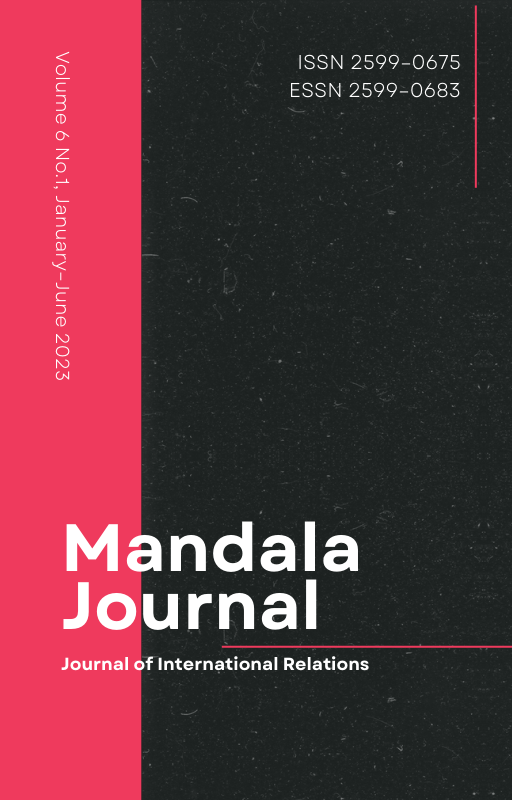Exploring Nishida Kitaro's Thought and His Contribution to the Development of a Japanese Perspective on International Relations
Exploring Nishida Kitaro's Thought and His Contribution to the Development of a Japanese Perspective on International Relations
DOI:
https://doi.org/10.33822/mjihi.v6i2.6927Abstrak
This article explains the development of the International Relations (IR) perspective in Japan through the contribution of Nishida Kitaro, a leading philosopher from the Kyoto school. Nishida Kitaro is a Japanese philosopher who created unique concepts that combine elements of Japanese culture and spirituality with Western thought. In the context of IR, Nishida's concepts such as “pure experience”, “bashō logic”, and “self-contradictory identity” offer alternative views in understanding global issues and the dynamics of inter-state relations. This research uses document and internet-based analysis methods, with qualitative data to explore Nishida's thinking and his contribution to IR studies. Research findings show that the concept of "pure experience" teaches about pure experience that is integrated with reality, presenting an inclusive perspective in analyzing global issues. Meanwhile, "the logic of basho" which emphasizes the interconnectedness of all things through the place where they appear, influences a collaborative approach to handling global issues. The thought of "self-contradictory identity" opens up insight into the complexity of reality and avoids simplistic views in analyzing actor actions in international relations. Overall, Nishida Kitaro's thinking provides a unique perspective that differs from Western IR, opening up opportunities for understanding and addressing complex challenges in interstate relations. His contribution to building a uniquely Japanese IR perspective has the potential to provide an interesting alternative to understanding the dynamics of international relations.







